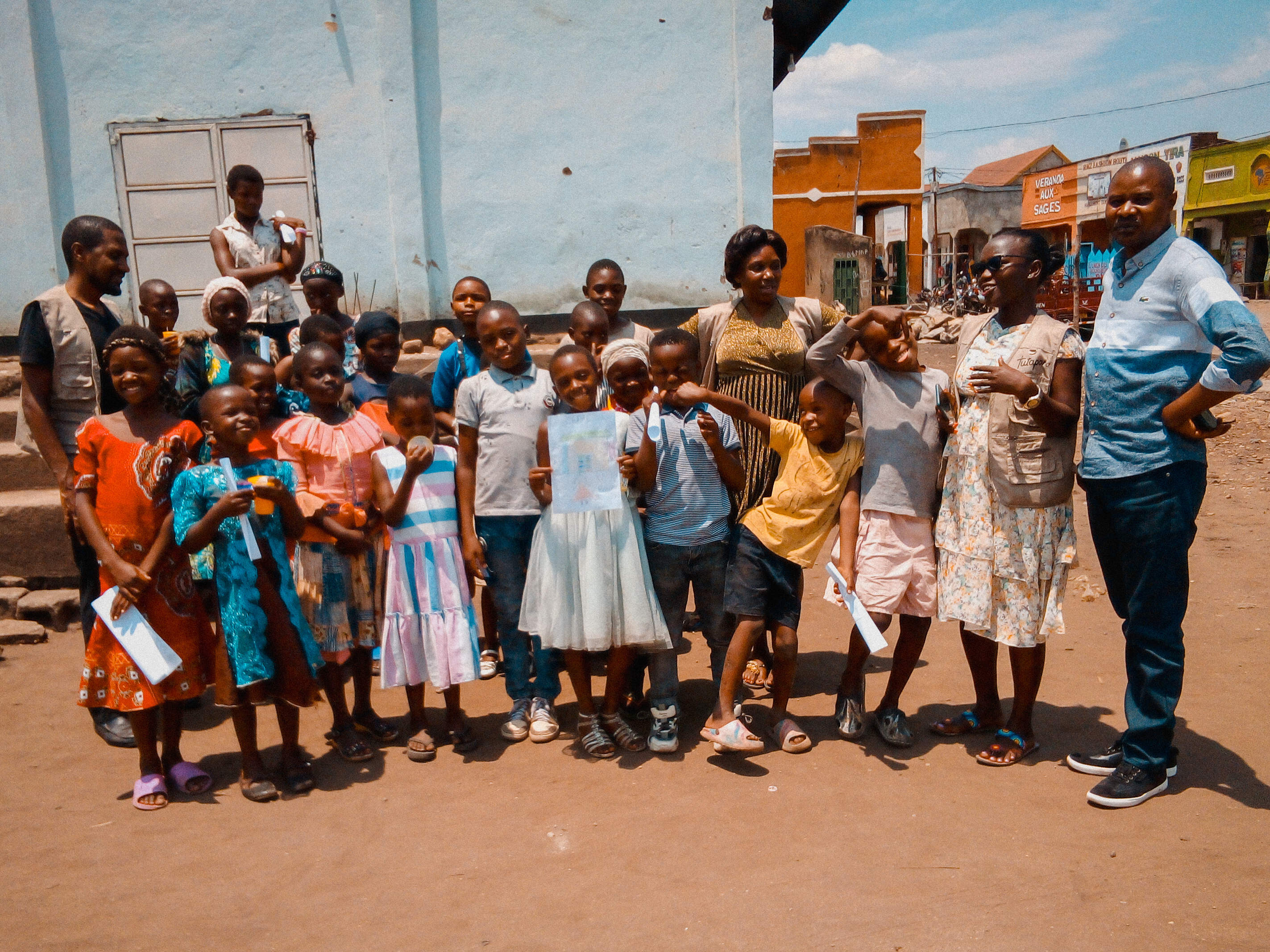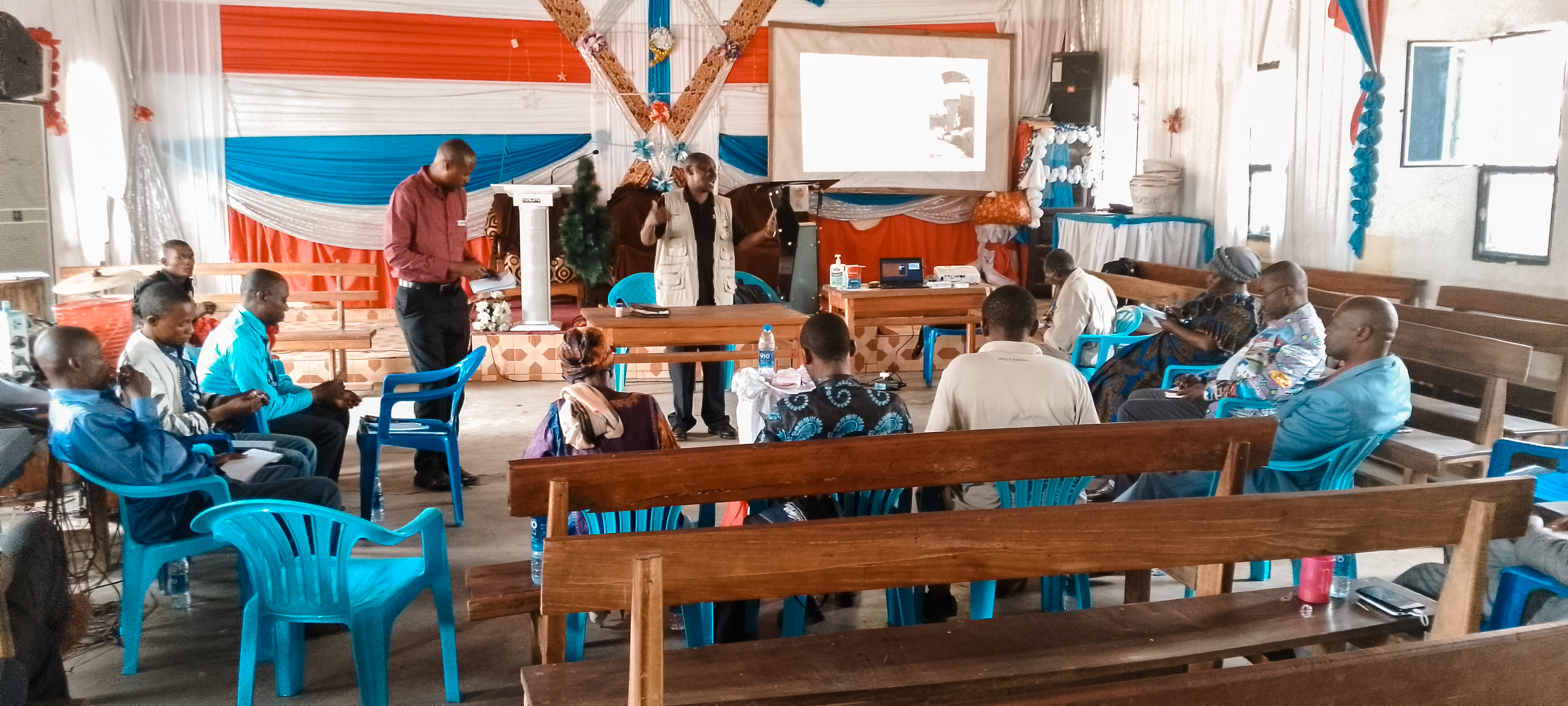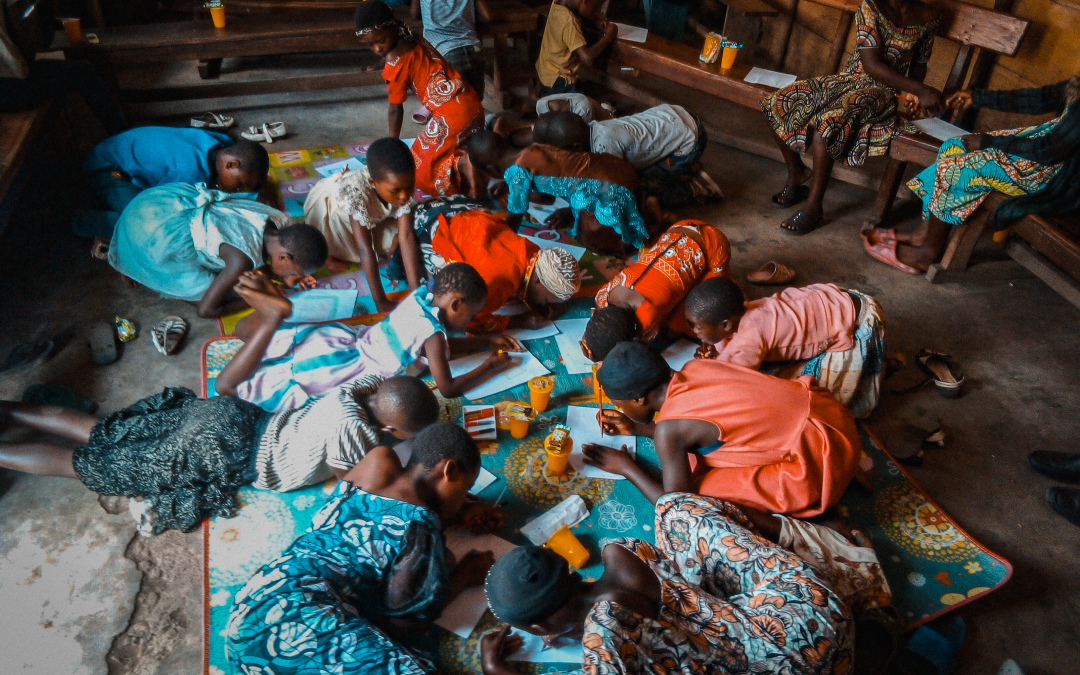People in Kasindi are slowly rebuilding their lives after a terrorist’s bomb ripped through a congregation during a Sunday baptism service last January. This village church in the northeast Democratic Republic of the Congo lost 15 people, and dozens more have spent months recovering basic functions. Psychological distress has been alarmingly high: a mental health assessment found over 80 percent of the victims had potential for post-traumatic stress disorder (PTSD), and over nine percent had “high risk” cases of PTSD. One interviewee recalled he felt so confused in the weeks after the attack that he forgot directions to familiar places. One woman said that children were most affected: “Many of them were injured, and others saw the dead bodies of their fellow children, and this has affected them so much.”
Mobilizing the Team
In March, Energy for Mission sent Country Director Marcel Serubungo to meet with a team from the trauma care organization Tutapona, which specializes in cases of violent conflict in Africa and the Middle East. After the initial assessment, they began to formulate a plan for helping the victims with mental health needs. Rev. Pastor Kambere Maombi was later appointed to serve as a Peace and Reconciliation Facilitator, a bridge between Marcel’s peace and reconciliation ministry and Tutapona’s work. Rev. Pastor Maombi knew beforehand that “the security in Kasindi is very fragile,” but, he added confidently, “the God that I will be serving there doesn’t change.”
The team decided to focus treatment through three main avenues. Individual therapeutic support sessions provided safe spaces for people of all ages to process trauma with therapists trained in trauma-informed care. A child-focused program called Heroes Journey helped over 50 pre-adolescent children process grief and loss in highly interactive group settings for two weeks. Therapists also trained 25 adults in basic mental health and psychosocial support (MHPSS) skills to function as Peer Helpers within their community. Tutapona’s model is to equip leaders who are a part of communities where trauma has occurred so they can serve the population after Tutapona staff have left. This includes partnering with existing nongovermental organizations (NGOs), including those providing mental and behavioral health services, such as Africa Services and Organisation, Evangelisation, and Intercession et Liberation, also working in Kasindi.
Seeing Fruit
Participants said they benefitted especially from a basic understanding of trauma and how it affects one’s brain and body. They took a lot from practical self-care skills like deep breathing and progressive muscle relaxation, identifying and avoiding triggers, and how to practice positive thinking. They learned how to identify symptoms of trauma in others, how to listen to others, and how to be a support for community members of different ages and genders.

Children show off their completed drawings. Tutapona
Working with children is an especially strong component of Tutapona’s programs. A mother in attendance observed how effective the Heroes Journey program was for the children after just two weeks: “It is unbelievable how children are speaking about positive changes that are happening to them in such a short time with these experts. Your program can really heal someone who is suffering from trauma.”
One Peer Helper, Mama Rosine, spoke about a nine-year-old girl named Anifa who had lost both parents. It was very difficult for Anifa’s grandmother to care for her, and they frequently had conflicts. She even thought of dismissing her from the home. But as a participant in the two-week Heroes Journey program, Anifa learned to identify what she was feeling and process it in healthy ways. Her communication with her grandmother improved. Now she brightens her grandmother’s home.
Rev. Pastor Maombi has observed Peer Helpers are eager to serve. The psychoeducation they have received has already helped victims recognize signs of stress and trauma and know when and where to seek help. A Peer Helper committee that Tutapona put in place conducts follow-up and helps Peer Helpers with issues they encounter while working in the community. These leaders also keep in touch remotely with Tutapona.

Peer Helpers in a psychoeducation session. Tutapona
A Continuous Need
In a post-program survey, participants spoke of the dire need for more services like these. People throughout the eastern DRC carry trauma from living through years of violent conflict. The particular attack at the CEPAC Kasindi church is only one example of continuous attacks on civilians from armed rebel groups that control large areas of the eastern provinces. The Allied Democratic Forces, which has claimed responsibility for the bombing, continues to disrupt the daily lives of local people, hindering agricultural labor, water collection, schooling, and even church attendance. Trainees emphasized a need to take a long-term approach to trauma care through connections with other trauma-healing experts. Under Marcel’s guidance, EFM wants to establish one of its Peace Committees there that will operate in coordination with Peer Helpers.
Learn more about Energy for Mission’s work to bring healing to the DRC.



Recent Comments